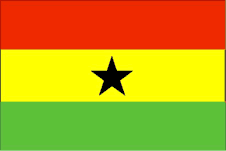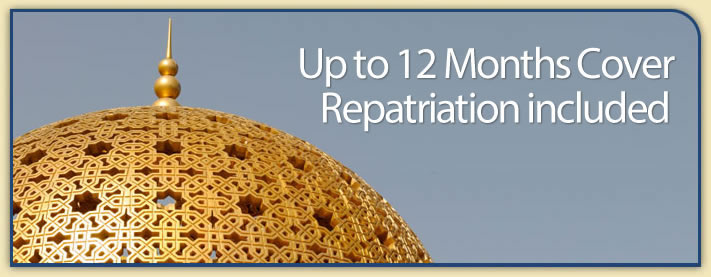Country Guide • Ghana

Ghana is situated in West Africa and is bounded by Burkina Faso, Togo, the Atlantic Ocean and Côte d’Ivoire. A narrow grassy plain stretches inland from the coast, widening in the east, while the south and west are covered by dense rainforest.
| Official Name | Republic of Ghana |
|---|---|
| Area | 239,460km² (92,456mile²) |
| Population | 20,467,000 |
| Continent | Africa |
| Population per mile² | 221 |
| Capital City | Accra |
| Religions | Christians account for 63% of the population, (Protestants 28% and Roman Catholics 19%). 21% follow local native tribal beliefs, 16% Muslims |
| Language | English is the official language but no one language is used or understood by the majority of Ghanans. The most important indigenous languages are Twi-Fante, Ga, Ewe in the south as well as Dagbane, Grusi and Gurma in the north |
| Government | Parliamentary Democracy |
| Currency | Cedi |
| GDP | $42.5 billion |
| GDP per Head | $2,100 |
| Natural Resources | Gold, timber, industrial diamonds, bauxite, manganese, rubber and fish |
| Land Use | Arable Land 16% |
| Agriculture | Cocoa, rice, coffee, cassava (tapioca), peanuts, corn, shea nuts, bananas; timber |
| Industry | Mining, lumber, cocoa and light manufacturing |
| Tourism | Ghana’s coastline is dotted with sandy palm-fringed beaches and lagoons. The capital, Accra, features the Makola Market, a large and busy open-air market. Kumasi is the historic capital of the Ashanti civilisation, where ruins of the Manhyia Palace and the Royal Mausoleum burnt down by Lord Baden-Powell may be examined. In the northeast, the Boufom Wildlife Sanctuary contains the spectacular Banfabiri Falls. Mole National Park is recommended. Species of antelope, monkeys, lions and elephants can all be seen on guided excursions |
| Natural Hazards | Dry, dusty, north eastern harmattan winds occur from January to March and droughts |
| Health Risks | Cholera, malaria, yellow fever, bilharzia (schistosomiasis and HIV/AIDS |
| Climate | Ghana has a tropical climate warm and comparatively dry along south east coast; hot and humid in south west; hot and dry in north Ghana has a tropical climate that varies from a warm dry coastal belt in the south east and a hot humid south west corner to a hot dry northern savannah. Average temperature ranges in Accra are from 22°C to 31°C all year |
| Time | Same as GMT/UTC hours |
| National Days | March 6 |
| Visas | All visitors are required to have a visa, except for citizens of countries belonging to the Economic Community of West African States (ECOWAS) |
| British Embassy | Embassy Details |
Information Only
The content above is for information purposes only and we have tried to ensure that the information is as accurate as possible. We cannot accept any responsibility for any inconvenience, loss or injury as a result of the information above. You should always check and verify any critical information like visas, health and safety and customs with the relevant authorities before you travel since information can change at any time.



